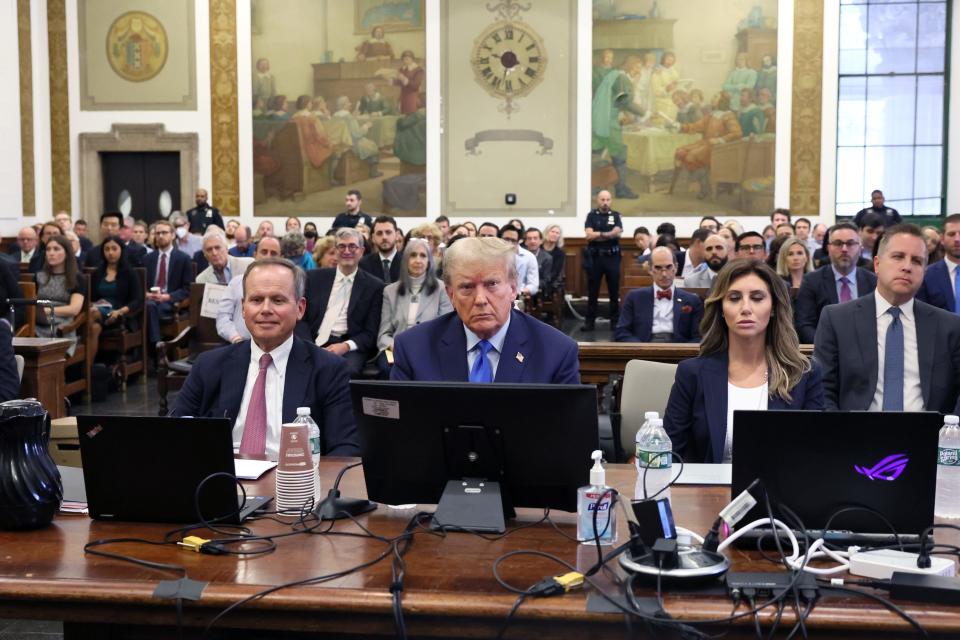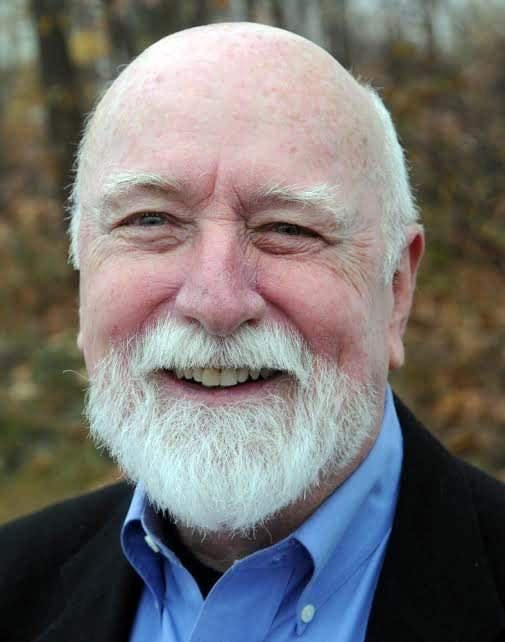The Art of the Con: How Trump follows P.T. Barnum’s playbook
- Oops!Something went wrong.Please try again later.
- Oops!Something went wrong.Please try again later.
Phineas Taylor Barnum, an American politician, entrepreneur and showman was born in Connecticut in 1810. He is probably best remembered for co-founding the Barnum & Bailey Circus, an enterprise that gave him limitless opportunities to promote hoaxes, hustles and humbugs. Barnum was also an insightful observer of human behavior.
“You can fool most of the people most of the time,” he once said.
Who can deny it? I’ve been thinking about P. T. Barnum ever since former president Trump was found liable for fraud by Judge Arthur Engoron, allowing his prosecution in New York State to go forward. His civil fraud trial began this week.

P. T. Barnum, author of “The Art of Money-Getting” (1880) and other works, could well have been the inspiration for the likes of the Donald.
“The bigger the humbug,” Barnum once said, “the better people will like it.” Both Barnum and Trump lived by Barnum’s principle that “There's no such thing as bad publicity.”

Trump has built his career on bluster, deceit and broken promises.
His Plaza Hotel and Casino in Atlantic City, a key property in his real estate empire, opened in 1984. Subsequently, it went bankrupt, was shuttered and demolished.
But not before Trump stiffed his many creditors with unpaid bills and broken contracts.
One of these contracts was held by a York resident who, at the time, operated a company that manufactured women’s clothing. I spoke recently to the former principal of this Maine-based apparel company, which did business with Trump in the early 1990s.
“Just before Trump’s casino went bankrupt,” he told me, “we had supplied a variety of hand-loomed cotton and cashmere sweaters for his casino’s luxury women’s boutique.” The wholesale price of the lot of garments provided amounted to some $5,000. What happened? I asked. “He never paid us a cent. I suspect he never intended to.” That has been his M.O.
Fraud and fakery are set pieces in Trump’s business model. He is currently facing four separate trials at the state or federal level. Consider:
The March 2023 indictment in New York, where Trump has been charged with 34 criminal charges of falsifying business records. Trump’s former fixer, Michael Cohen, has called this case a financial “deathblow” should Trump be found guilty.
The June 2023 federal indictment filed in a Florida federal court where Trump faces 40 criminal charges alleging mishandling of sensitive documents and conspiracy to obstruct the government.
The August 2023 federal indictment in Washington, related to attempts to overturn the 2020 presidential election. There Trump faces four criminal charges of conspiring to defraud the government, disenfranchise voters, and obstruct an official proceeding.
The August 2023 indictment in Georgia, where Trump faces 13 criminal charges related to alleged attempts to overturn Joe Biden's win in Georgia.
The New York trial will see evidence that Trump and his co-defendants overvalued their assets by as much as $2.2 billion. Judge Engoron’s appellate ruling last week completely rejected Trump’s claim that he had not inflated the values of many of his golf courses, hotels and homes. If he is convicted, the case could make these properties subject to seizure and liquidation at public auction.
If found guilty, Trump and his co-defendants (including his two older sons) also could be required to pay a $250 million fine, an amount large enough to force the Trumps to sell further assets.
If you or I were in such deep legal and financial trouble, most of us would be catatonic with fear and wracked with remorse. Not DJT. Charges, indictments, criminal and civil trials only seem to embolden and even strengthen his position. Those who love him seem immune to mounting evidence that he has the scruples of a mob boss.
Let’s face it, the guy is a con man. Barnum’s observation about fooling people — “most of the people most of the time” — seems apt. A recent Fox News story reported that a Washington Post-ABC poll found that “if the 2024 presidential election were held today, Trump would win 52% to 42% over Biden.”
Fifty-two percent — that’s most people.
Abraham Lincoln offered a Barnum corollary (though I don’t know whose wisdom came first): “You can fool some of the people all of the time,” Lincoln said, “and all of the people some of the time, but you can not fool all of the people all of the time.”
Let’s hope it is Lincoln and not Barnum who will inspire most voters next time around.
Ron McAllister is a sociologist and writer who lives in York.
This article originally appeared on Portsmouth Herald: How Donald Trump follows P.T. Barnum’s playbook

